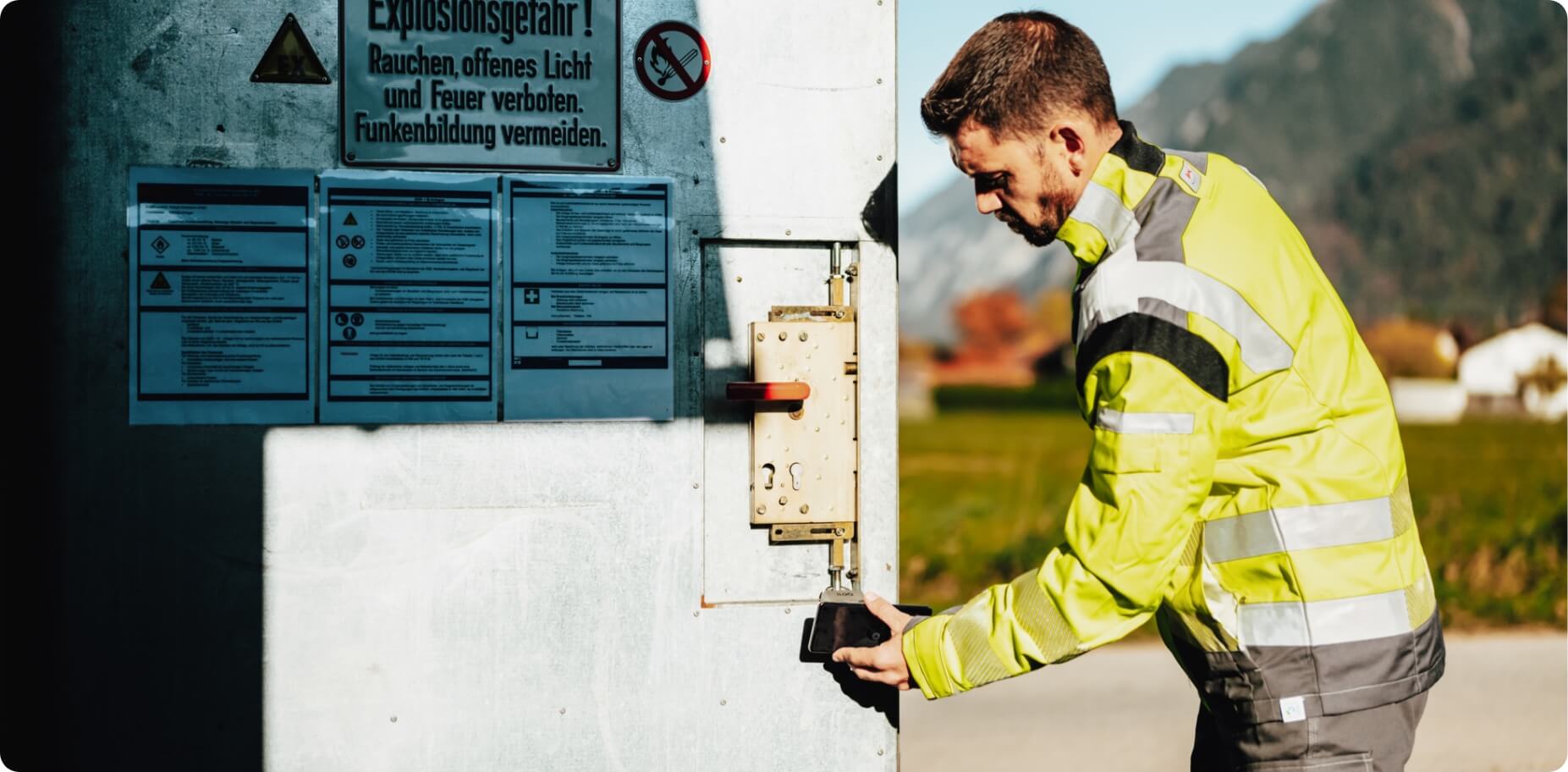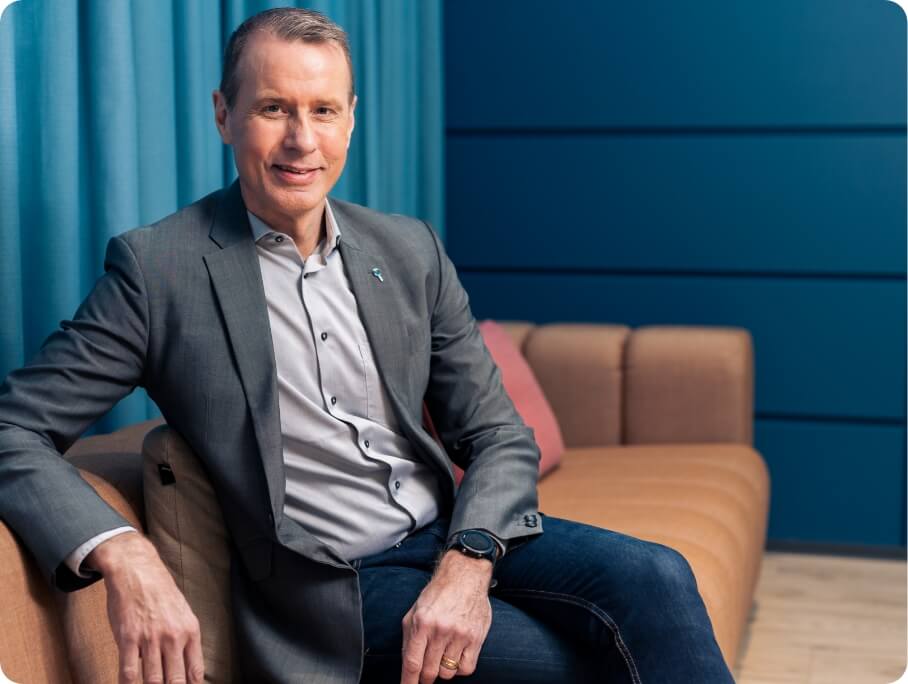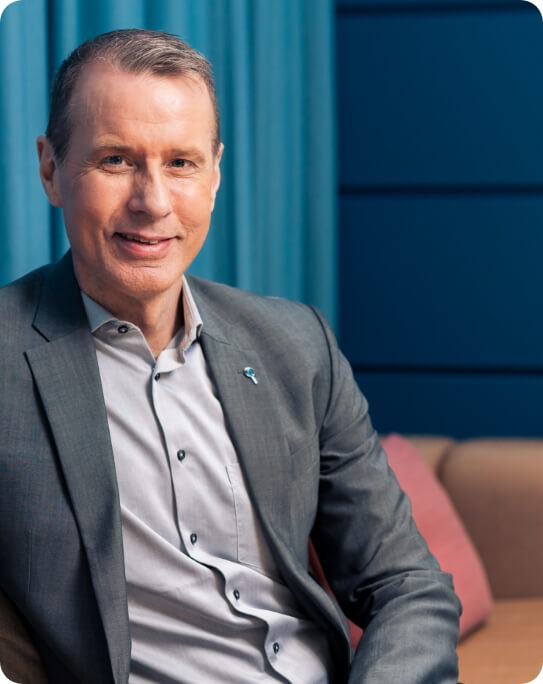The Global Key Account Model is built around centralized contacts between iLOQ and the end customer. The work is always executed locally through iLOQ sales and the partner network. iLOQ facilitates the cooperation and ensures the quality of products and services provided by local teams. It has been easy to see how this model helps global industrial customers with international operations turn to iLOQ for a centralized way of working. Perhaps as a surprise to some, the residential sector has also come forward as a potential large segment for a more international approach.
Rise of global MFH contracts
In early 2022, iLOQ signed a global framework agreement with Heimstaden, one of the leading residential real estate companies and the second largest single owner of multi-family housing (MFH) in Europe. Heimstaden has a portfolio of around 150,000 apartments spread across 10 countries. To help the company to provide friendly homes for residents, they have decided to phase out mechanical locking across their entire portfolio in the years to come. The reasoning for this choice includes both the desire to provide a better living experience and also improve foresight and security across such a wide portfolio.
Thomas Thörewik, Chief Sales Officer, does not see Heimstaden to be an isolated case. “There is great potential in the MFH segment for these types of agreements,” he explains. “Especially with the growing interest in the added value the iLOQ HOME app has the potential to offer, what people want to invest in and buy from us is changing.” For building owners, being able to provide an improved living experience through smart technology holds great marketing value, ensuring better occupancy rates and premiums.
Change is around the corner
Thomas also anticipates that the big boom for iLOQ’s technology is still around the corner. “We are in the midst of a generational shift. While my mother-in-law is unlikely to adopt a mobile app as a part of access management in her daily life, my daughter certainly expects her entire life to be digital and mobile in some way.” This is quickly becoming apparent when looking at the central themes of discussion when it comes to student housing. The owners and operators of student housing are equally pleased with the ease of managing digital access rights for large volumes of frequently changing short-term residents.
And the general shift in the world is obviously more and more towards the mobile end of the spectrum, well-illustrated by the fact that iLOQ’s entry into the North American residential and built environment sectors will be done based on keyless, mobile-access solutions. “Of course, it is still up to the customer to choose which applications are best suited to mobile access, and which still benefit from a physical key. But the great thing is that our platform facilitates both and allows the owner to make that choice on an access point by access point basis,” Thomas reminds us.
Helping us feel safer
When asked about how the uncertainty of modern times has affected iLOQ, Thomas is quick to point out how the pandemic accelerated digital transformation on a global scale. “It’s not just us. Look at how quickly society as a whole adopted new digital working environments as a part of daily life, or how the online shopping and home delivery of groceries exploded almost overnight.” With the existing iLOQ HOME and more functionality in the pipeline, the coming years promise to be interesting in terms of the digital transformation in access management. With so much added value around the simple locking and unlocking of doors, it is hard to imagine a return to inferior and more limited solutions.
Also, with all the unrest around us, security is being discussed more and more. Without sounding sinister in any way, the feeling of vulnerability that society has to deal with today is turning the conversation towards many of the arguments that have been a basis for technical development at iLOQ for years; physical security, cybersecurity and reliable functionality without access to an external energy supply. These arguments are especially pressing for those operating in critical infrastructure such as the energy sector, telecoms or data storage and servers.
Making a difference
In many cases, especially when it comes to customers in all target segments and industries, the reason for partnering with iLOQ comes down to the ability to provide measurable benefits in terms of both business performance and sustainability. OPEX savings are not only born out of a reduced need for maintenance and time spent picking up and returning keys, but many customers understand that they have regained control of their sites thanks to the digital data provided by the iLOQ solution. From an access management point of view, being able to understand in real time what is really going on in every remote site based on facts and data helps our customers to improve operational performance and change behaviors.

The sustainability benefits of iLOQ’s digital access management solutions – the elimination of 100,000 kg of batteries a year – are well-documented. Whilst the not-yet-measurable and documented sustainability impact of using iLOQ’s solutions might have an even more positive impact on our environment. “Just think about what it takes to produce 100,000 kg of batteries or the impact of all the key transportation that technicians, sub-contractors, property managers and customers have to do every day – and then imagine the significant time, cost savings and CO2 reductions we could achieve in all major cities. That alone is a great reason to invest in iLOQ’s battery- and maintenance-free digital access management solutions” concludes Thomas Thörewik.

